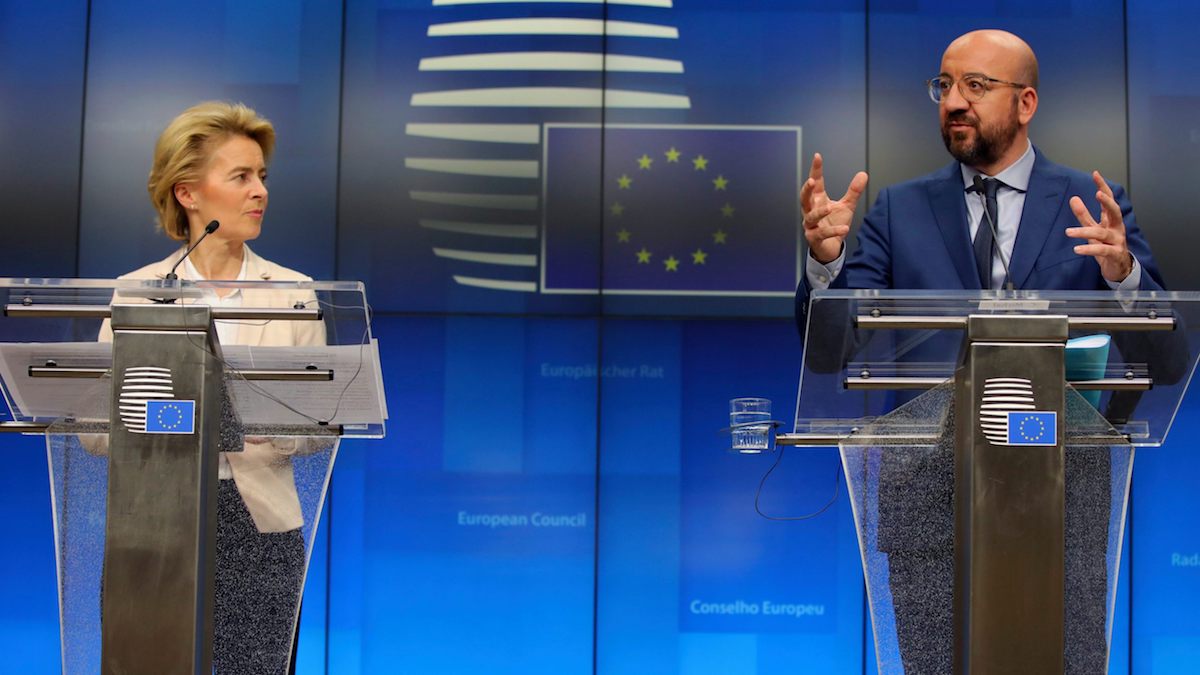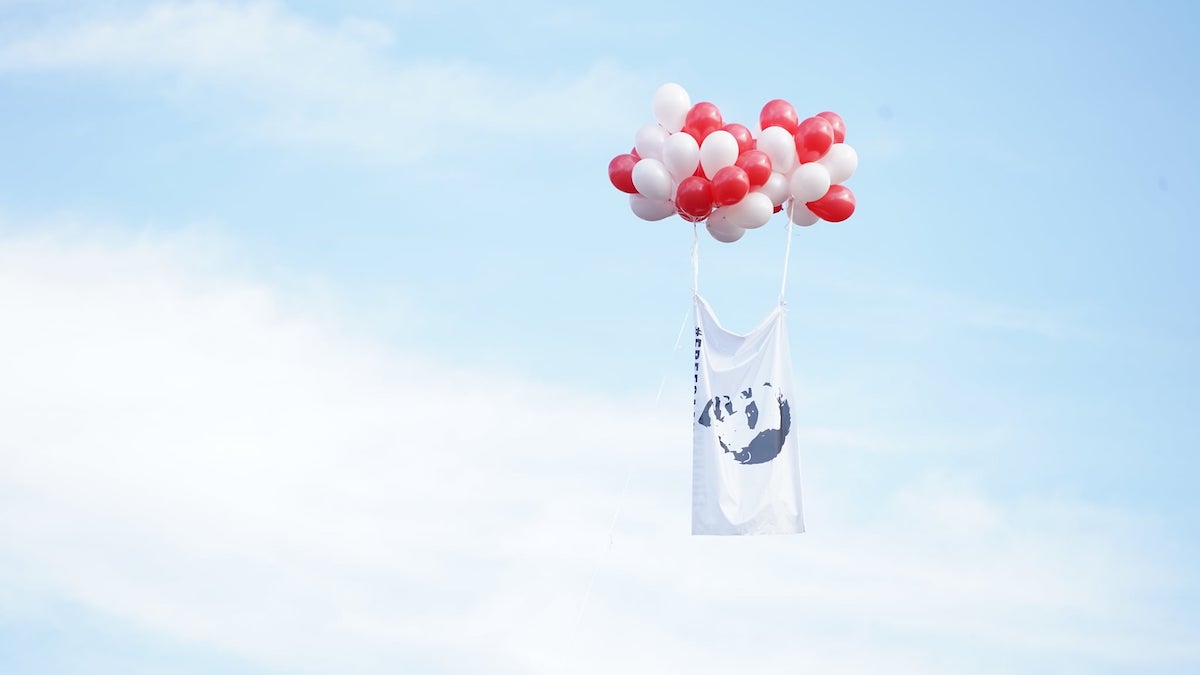Georgia: who is an oligarch exactly?
Who is an oligarch exactly?
The Parliament of Georgia adopted on a second reading a draft law “On deoligarchization” by 76 votes to 6. “Deoligarchization” is one of the 12 conditions that Georgia must fulfill in order to obtain the status of candidate for the European Union.
The opposition does not support the law initiated by Georgian Dream, which says that Bidzina Ivanishvili, the billionaire who once founded the current ruling party and is often called the shadow ruler of the country, will not be included on the list of oligarchs. Instead of Ivanishvili, businessmen who are somehow connected with the opposition will be included in the document.
Thus it is likely that instead of real deoligarchization, the law will strengthen Ivanishvili’s informal rule and become instead a tool for fighting the opposition.
What does the bill contain?
The draft law “On Deoligarchization” prepared by Georgian Dream is similar to a Ukrainian law addressing the same issue.
Under Ukrainian law, an oligarch is a person who meets at least three of the four criteria below:
- participates in political life;
- influences the media;
- has a dominant business or business in the market for at least the last year;
- possesses capital a million times greater than the cost of living. [In Georgia, the cost of living is 250 lari (about $90), thus about 250 million lari (90 million dollars)].
The government decides who an oligarch is, because according to the same law, the body that compiles the list of oligarchs is the executive authority.
The opposition has criticized the law and demands it be sent to the Venice Commission, but the administration has ignored this request. Mikhail Sarjveladze, an MP from the ruling party, told Radio Liberty that “based on its content” he sees no need to send the law on deoligarchization to the Venice Commission.
Ivanishvili or Saakashvili – who is the oligarch?
So far, the exact list of people who may be affected by the law on oligarchs is unknown. It is more interesting that the people who “inspired” Georgia’s Western partners to create a 12-point plan are clearly not included therein. The initiators of the bill are clearly in no hurry to include billionaire Bidzina Ivanishvili, whose influence on the government, media and other institutions of Georgia is almost never denied.
The government and the prime minister, required by law to draw up a list of oligarchs, categorically deny Ivanishvili’s influence on politics and do not recognize his informal rule.
Ivanishvili does not officially own the media, and under the current government it is difficult to prove that he has a dominant business in the country. Ivanishvili himself meets only one criterion of the four above, so he does not technically qualify to be on the list.
Who is an oligarch exactly?
This has been repeatedly confirmed by members of Georgian Dream. When asked if Bidzina Ivanishvili was meant in the 12-point plan, the chairman replied:
“It shouldn’t be expected. Bidzina Ivanishvili is a businessman with a specific past, besides being a philanthropist. In 2012 he ended the bloody regime [as the ruling party calls its opponents and predecessors]. Therefore one cannot talk about Bidzina Ivanishvili in such a context,” Irakli Kobakhidze stated.
In a long letter posted on his Facebook page, Prime Minister Irakli Garibashvili noted that talk that Ivanishvili manages and controls the current government is “complete farce and absurdity.”
He also proposed that Mikheil Saakashvili instead be on the list.
“We have well-known oligarchs in Georgia. These are people who have been robbing the Georgian people for nine years. For example, Saakashvili. Today he is in prison, which means that a concrete step towards deoligarchization has already been taken,” Kobakhidze said.
Another candidate for the list is David Kezerashvili, the founder of the opposition TV company Formula and one of the main financiers of the opposition parties. Kezerashvili’s name is most often mentioned by Georgian Dream in reference to “Law on deoligarchization”.
“Kezerashvili is the second oligarch and a criminal case has been initiated against him, and, of course, for deoligarchization it is important to bring this case to a close. We will get to all issues. Naturally, putting an end to the oligarchs is one of the most important tasks of the Georgian state,” Kobakhidze went on.
Who is an oligarch exactly?
Kezerashvili served as Minister of Defense and other high positions under the previous government, and Ivanishvili left Georgia after coming to power. It is not known exactly what kind of property Kezerashvili owns, although authorities point to a corrupt origin of his money. Several criminal cases have been initiated against him, and in one of them he was sentenced in absentia to imprisonment. If he returns to the country, he will be arrested.
Millionaire Kezerashvili has been the primary donor to individual opposition parties for many years. He also owns one of the most important channels, “Formula”. The government is currently trying to create problems for him and his channel. The adoption of the Georgian version of the Ukrainian “Law on deoligarchization” will only make their task easier, experts say.
The law also contains criticism of the satellite parties of the Georgian Dream. MP David Zilfimiani from the Alliance of Patriots says in an interview with Business Press News that under this law he also becomes an oligarch:
“I am a deputy, that is, they may consider that I have political influence, own some property, and it so happened that as a result of EU rules only I have a license for telecommunications distribution channels,” Zilfimyan said.
He believes that many can be called oligarchs:
“What does political influence mean? For example, if a person lives in a region and, say, owns a newspaper and, let’s say, breeds turtles. If, apart from him, no one else is engaged in this activity, then he is already an oligarch.”
Feedback from the international community and experts
Most of the Georgian political spectrum, as well as experts and the civil sector, agree that the only person in Georgia today who can rightly be called an oligarch is Bidzina Ivanishvili.
However, in international documents relating to Georgia, the country’s Western partners avoid naming specific individuals in the context of “deoligarchization.”
Ivanishvili’s last name is not mentioned in the 12-point plan which refers to “deoligarchization”.
When asked by a journalist how the country should implement the European Commission’s recommendation on deoligarchization, the new EU Ambassador to Georgia, Pavel Gerchinsky, in an interview with Interpressnews, published on September 20, stressed that there were no names among the 12 points.
“We are talking about the process, but we are not giving any names,” he said.
Who is an oligarch exactly?
In response to a question prepared by Georgian Dream about deoligarchization and the Ukrainian model, US Ambassador to Georgia Kelly Degnan said:
“Personally, I don’t think it’s always good to just borrow [a strategy] from someone else without adapting it to the specifics of the situation in your country.”
According to the Ambassador, “Countries deal with undue influence in the political sphere in different ways, and I think that each country should look into this issue and find its own solution.”
The public organization Center for Social Justice, after studying the bill on “deoligarchization”, came to the conclusion that the definition of an oligarch is vague.
“When there are no strong and independent democratic institutions in Georgia, the adoption of such a law creates a danger that such power will be used selectively by political authorities as a sign of political loyalty,” the center’s assessment says.
There is only one hearing left for the adoption of the “Law on deoligarchization”. It will go into effect six months after its adoption and will be valid for ten years.
Cover photo: Mark Frost on Unsplash
Who is an oligarch exactly?




















